Free 24/7 Nurse Advice Line: 844-GET-CHOC.
Arachnoid Cysts
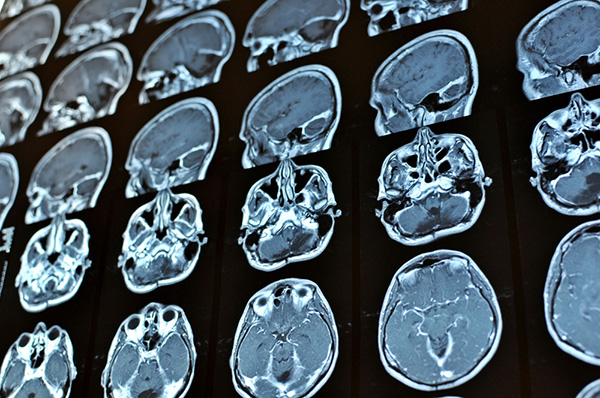
Arachnoid and other brain cysts
Finding out that your child has a brain cyst can be scary, especially since there may not be obvious signs that a problem exists. Most cysts are benign (non-cancerous) and many do not require treatment. Those that do require treatment are often eligible for minimally invasive procedures and result in good outcomes.
What are Brain Cysts?
A brain cyst is a balloon-like sphere found in the brain. The most common—the arachnoid cyst—is full of cerebrospinal fluid. Other types can contain pus, hair follicles or skin cells. They are not considered tumors, and are usually non-cancerous.
What are arachnoid cysts?
Arachnoid cysts are the most common type of brain cyst. They get their name from the arachnoid membrane that covers the brain and spinal cord. The cysts can occur in the brain or spinal canal. Arachnoid cysts affect approximately 3 in 100 people, but most will never know they have one because they often go undetected.
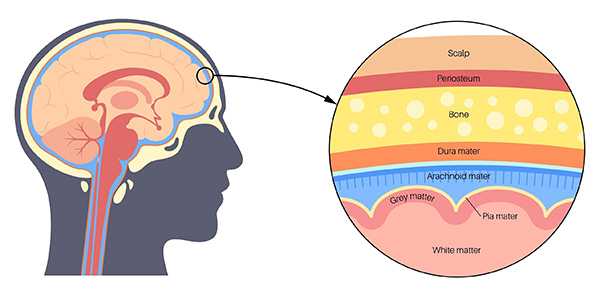
What causes arachnoid cysts?
Most arachnoid cysts are congenital, meaning they are present at birth. The exact cause of congenital arachnoid cysts is unknown, but there is evidence that some people have a genetic predisposition, meaning it is passed on through families. Rarely, complications from arachnoid cysts may develop due to a head injury, infection, surgery or the presence of a brain tumor.
What are the symptoms of arachnoid cysts?
Arachnoid cysts often have no symptoms and may go undetected for years if they remain small. When arachnoid cysts grow, they can apply pressure on the spinal cord, cranial nerve or brain, which may cause symptoms.
Arachnoid cyst symptoms may include:
- Headaches
- Nausea
- Dizziness
- Vision problems
- Impaired balance
- Behavior problems
- Impaired brain function
When symptoms do occur, they depend on the location and size of the arachnoid cyst and what brain regions it presses against, affecting function.
How are arachnoid cysts diagnosed?
Many times, arachnoid cysts are found incidentally, when a child has a test such as an MRI or CT scan for another reason like head trauma.
Arachnoid Cyst Treatment: Is surgery needed for arachnoid cysts?
While most cysts can be monitored clinically, there are times when the cyst grows and treatment becomes necessary. Because an arachnoid cyst is a fluid-filled sac, the goal in treatment is to fenestrate, or create very small openings, in the wall of the cyst so the fluid can drain into a location where they body has built-in abilities to re-absorb the fluid. This procedure relieves the pressure that is created by the cyst and alleviates symptoms.
- Endoscopic fenestration ‒ At CHOC, our doctors typically use a minimally invasive procedure called an endoscopic fenestration. Endoscopic tools are inserted through a small incision into the cyst. Holes are created in the wall of the cyst, allowing the liquid to drain and safely absorb into the brain.
- Craniotomy ‒ In cases where an endoscopic procedure isn’t successful, a small craniotomy may be performed, in which a small part of the skull is removed and the wall of the cyst is opened up so that the fluid can drain.
- Shunt – When endoscopy or craniotomy are unsuccessful, which is rare, a shunt may be inserted with tubing that runs beneath the skin and allows the fluid to drain and be absorbed by the abdominal wall.
Arachnoid cyst recovery and follow-up care
Depending on the course of treatment, you will likely have follow-up visits with your child’s doctor at CHOC. CHOC will follow your child throughout their life, from birth to surgery to recovery and beyond, with regular checkups to ensure the best possible outcome for your child.
Other brain cysts in children
Besides arachnoid cysts, there are several other types of brain cysts that can commonly occur in children. These include colloid and dermoid cysts:
- Colloid cysts ‒ These cysts likely begin during fetal growth as part of the development of the central nervous system, but often do not present any symptoms until later in life. These cysts are filled with gelatinous material and can cause headaches, nausea or excessive cerebrospinal fluid, known as hydrocephalus.
- Dermoid and epidermoid cysts ‒ Dermoid cysts occur when skin and related cells become trapped during development. They may occur on the brain, but can also be found elsewhere in the body. These cysts often contain hair follicles, cartilage or glands.
Why CHOC?
While a condition like an arachnoid cyst may be a new diagnosis for your child, it is familiar to us, and we have years of experience diagnosing and treating cases that range from common to complex. We also understand that each case is unique, and will develop an individual treatment plan just for your child and their needs.
- Our MRI imaging services are provided in a family-friendly environment, customized for children, to provide the best imaging quality available in a safe and comforting environment.
- Our child life specialists provide education and support for your diagnosis, pre-surgical preparation and kid-friendly entertainment for hospital visits and tests.
- Our surgical center is outfitted with advanced imaging, communications and robotic technologies specific to children and their needs.
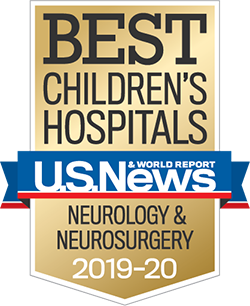
The Fetal Care Center of Southern California
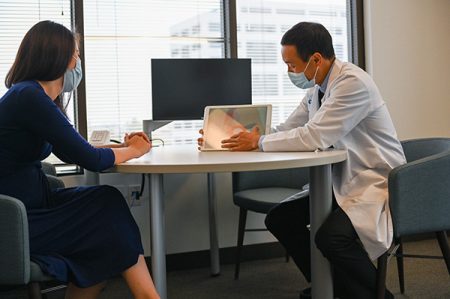
If an abnormality is detected before your baby is born, our team of pediatric experts at the Fetal Care Center of Southern California can confirm your baby’s diagnosis, provide extensive condition education and counseling, and begin comprehensive treatment planning for after your baby’s birth.
Meet Our Pediatric Neurosurgeons
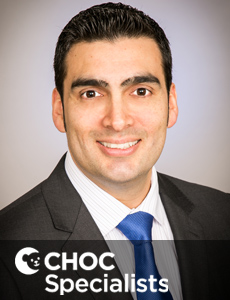
Olaya, Joffre E. MD
Specialty:
Neurosurgery
Appointments: 714-509-7070
Dr. Joffre Olaya specializes in neurosurgery. He sees kids and teens at CHOC Hospital in Orange and CHOC at Mission Hospital.
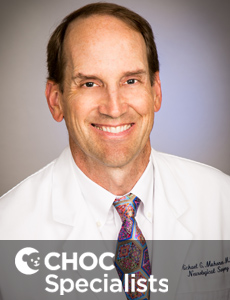
Muhonen, Michael G. MD
Specialty:
Neurosurgery
Appointments: 714-509-7070
Dr. Michael Muhonen is a board certified neurosurgeon at CHOC, treating babies, kids and teens with neurological disorders.
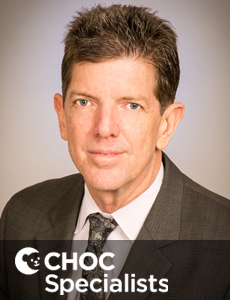
Loudon, William G. MD, PhD
Specialty:
Neurosurgery
Appointments: 714-509-7070
Dr. William Loudon is a board-certified pediatric neurosurgeon at CHOC Hospital.












